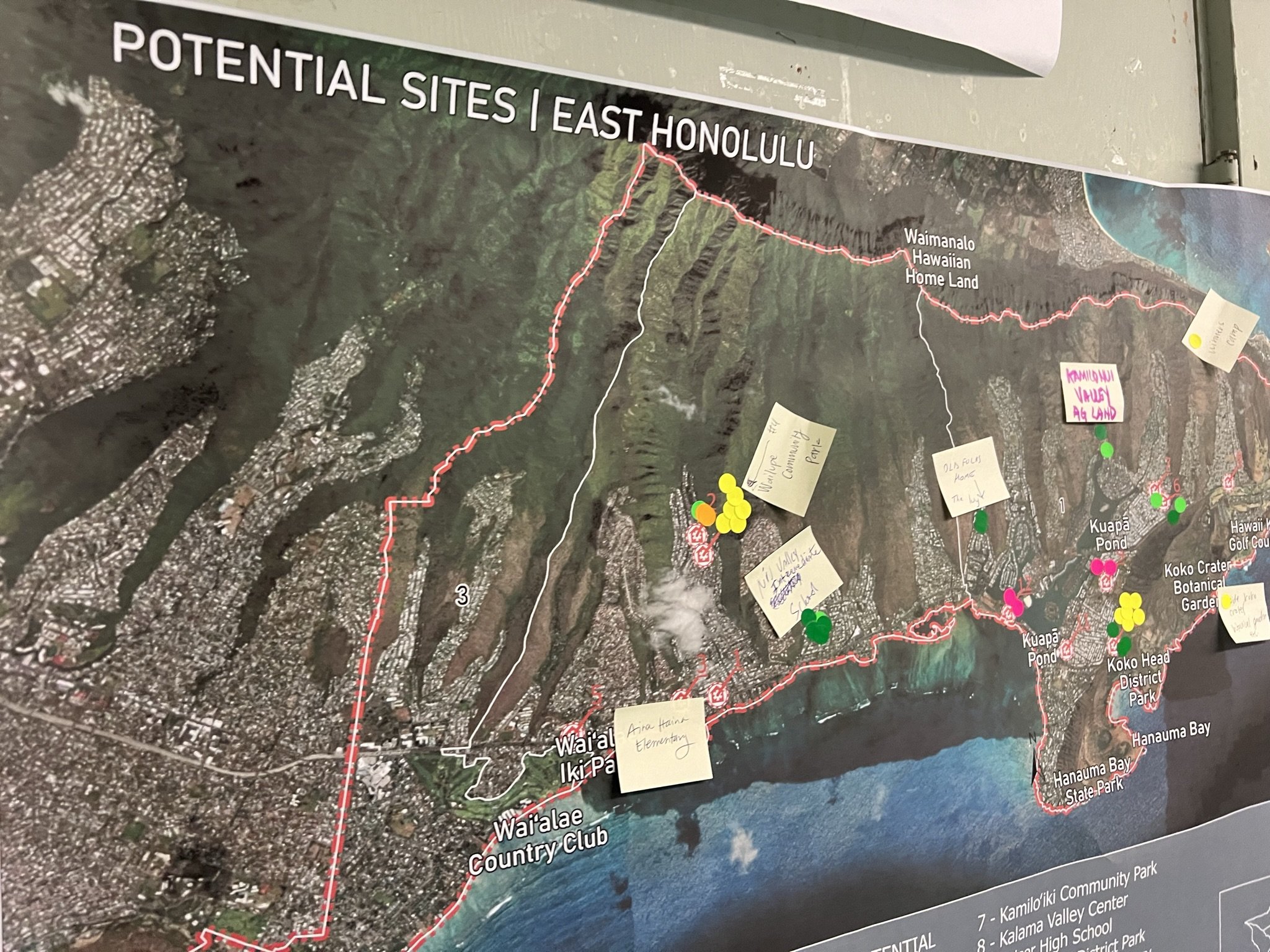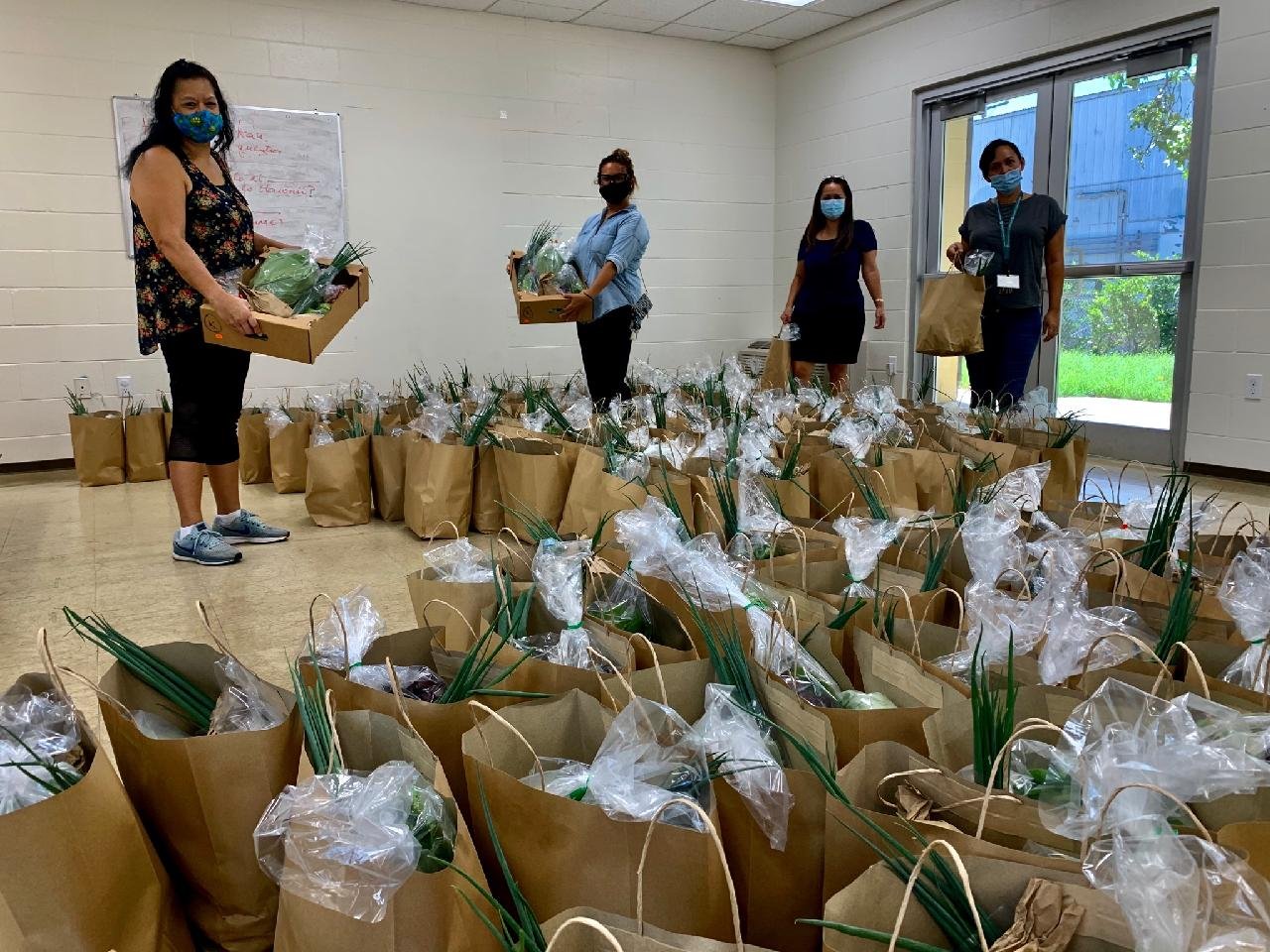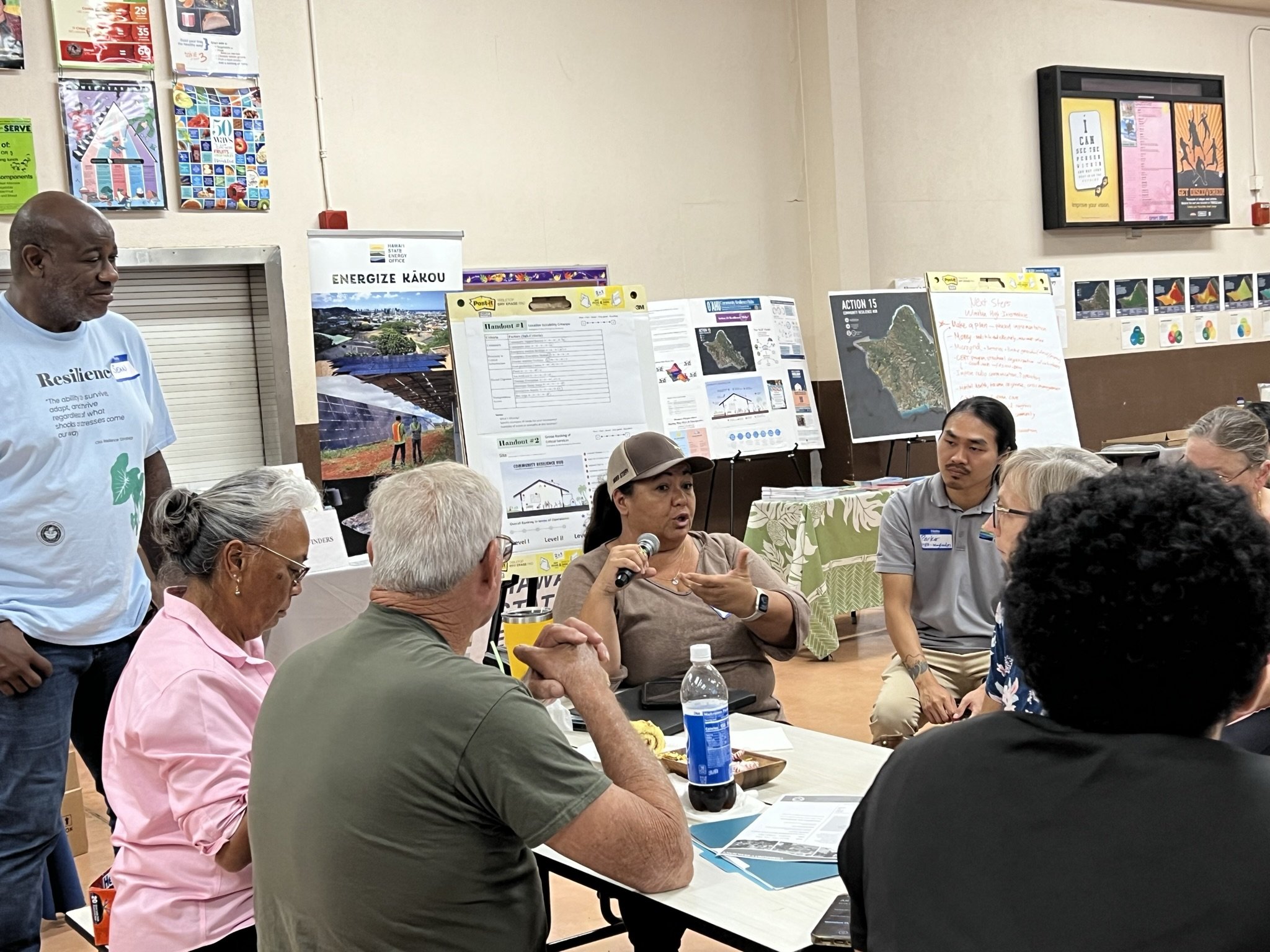
Resilience Hubs

As we witness an increase in the frequency and intensity of climate shocks (like floods and hurricanes) and stressors (like sea level rise and increasing heat), as well as the COVID-19 pandemic, communities around the world are focused on ways to improve their resilience to events like these. Recognizing this need, the Resilience Office has partnered with the Center for Resilient Neighborhoods (CERENE) at Kapiʻolani Community College as well as nonprofits and local communities to start developing a network of Resilience Hubs across Oʻahu.
What are Resilience Hubs?
After working with community on the Action 15 Project (see below section), the following definition was collectively developed for Resilience Hubs here on Oʻahu.
Resilience Hubs (“Hubs”) are community-led, trusted gathering spaces (virtual or in-person) that connect residents and serve their immediate or surrounding neighborhoods. Hubs provide access to services, programs, resources, and opportunities for community members. They utilize place-based, culturally informed strategies that increase personal and interpersonal resilience. Their functions vary depending on a community’s needs while operating in both non-emergency (blue skies) and emergency (gray skies) scenarios.
The Oʻahu Agriculture & Conservation Association provided locally sourced food to Kunia residents during the COVID-19 pandemic.
Given the flexibility of Resilience Hubs, they can work together islandwide and statewide. Hubs can take the form of a pop-up aid distribution center, a group of people who meet regularly to support services and programs, a “precovery pod” filled with non-perishable food and medicine, physical structures like a building, and more. A network of hubs can be formed when Hub organizers and community members connect to share resources or knowledge.
How has the City been supporting Resilience Hubs?
The City’s Ola: Oʻahu Resilience Strategy identified Action 15: Develop a Network of Community Resilience Hubs islandwide. In support of this, the City partnered with the University of Hawaiʻi and Center for Resilient Neighborhoods (CERENE) at Kapiʻolani Community College to complete the Action 15 Project, which started in January 2022 and ended in August 2023. It focused on three key objectives:
Developing partnerships with community organizations and identifying the level of community support for Resilience Hubs,
Identifying potential Resilience Hub locations across Oʻahu’s eight regional planning areas, and
Working with residents to determine programs, services and needs for Resilience Hubs.
During the course of the Project, over 3,000 residents were engaged through a community-wide survey and participation in over 110 outreach events, including 16 project-facilitated workshops. Throughout these efforts, preferred potential hub locations were identified by the community, and a list of tangible neighborhood-level next steps were generated. Most importantly, the community members involved reported feeling more empowered to participate in resilience planning and a greater sense of community.
To learn more, click here:
The Action 15 Project Appendices are are follows: Appendix A: Survey Findings, Appendix B: Suitability Analysis, Appendix C: Cost Estimate Focus Group Findings, Appendix D: Vulnerable Neighbors Next Steps, Appendix E: Completed Suitability Maps, Appendix F: Phase II Workshop and Focus Group Summary, Appendix G: Workshop Handouts, Appendix H: Supplementary Workshop Table Rankings, Appendix I: Regional Next Steps.
What’s Next?
While the Action 15 Project has wrapped up, the City and CERENE’s support of Resilience Hubs is ongoing. Next steps to support the development of Resilience Hubs across Oʻahu were are identified in the Project’s Final Report. They are community-driven and focused on seven key areas:
Hub Location and Infrastructure Development
Partnership Development
Hub Network Establishment and Support
Culturally Informed Practices, Integration, and Outreach
Blue Skies Capacity Building and Coordination
Gray Skies Disaster Planning and Preparedness
State and Regional Collaboration
Check out the Plan to learn more about the 26 actions identified to implement and drive the establishment of a Resilience Hub network islandwide.
Community members share their manaʻo at the Waialua/North Shore workshop.

Get Involved
There are many ways to follow, participate and keep up with this work.
Sign up with CERENE to participate in future community engagement conversations, webinars, talk story sessions and planning events regarding community resilience in your neighborhood and across the island. Learn more about CERENE at cerenehawaii.org and email cerene15@hawaii.edu with any questions.
Follow the Resilience Office on social media and subscribe to newsletter updates.



